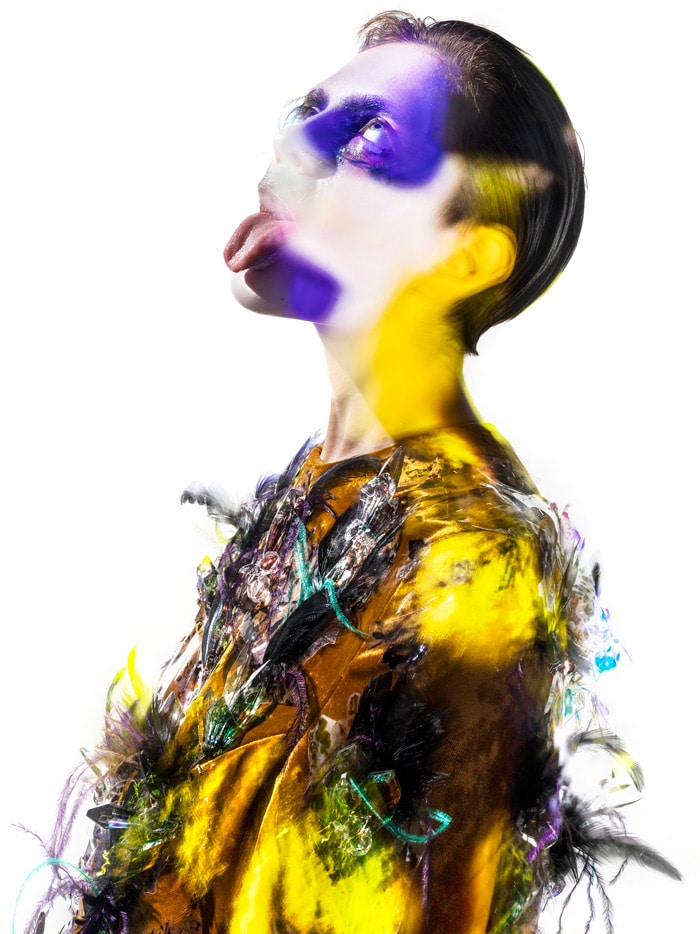
Opinion
Vogue Portugal controversial ‘madness’ issue got one thing right about mental health
By Sophie Imber
Opinion
Vogue Portugal controversial ‘madness’ issue got one thing right about mental health
By Sophie Imber
Published Aug 6, 2020 at 11:02 AM
Reading time: 3 minutes
Mental health
Aug 6, 2020
On 6 July, one of the world’s most high-profile magazines apologised for its latest issue, which was titled ‘The madness issue’. Vogue Portugal’s July/August issue featured a series of four covers, one of which depicted a naked woman hunched in a bathtub while two nurses poured water on her. To say that using a psychiatric hospital to trivialise mental health treatment needed a more thoughtful approach would be an understatement.
To say that, in 2020, magazines of such power and prestige thought it acceptable to use their international platform to glamourise such insensitive imagery, is very troubling. The cover perpetuates the institutionalised pejorative view of mental health and dehumanises those who have sought, are currently seeking or will seek treatment. It fuels people’s lack of understanding of mental health experiences, and yet, Vogue Portugal got something right here. Let me explain.
In today’s society, global mental health systems remain outdated, ineffective and riddled with injustice. People are right to call out Vogue Portugal for spreading this stigmatised ‘madness’ mental health view, but this blame cannot be fully put on the magazine, because the rest of the world needs calling out too.
Just last month, a United Nations report urged the global community to move away from a “mad or bad approach” when addressing mental health challenges.
People from traditionally marginalised groups are often labelled as ‘bad people’, ‘criminals’ or ‘sick patients’. According to UN human rights expert Dainius Pūras, our global mental healthcare systems “seek to prevent behaviours seen as ‘dangerous’ or provide treatment considered ‘medically necessary’ without consent.”
As a result, life in schools and on the streets turns into life in prisons, hospitals and private treatment centres, where human rights violations are systemic. Help becomes more dependent on how dangerous you are, instead of how much you are suffering.
Furthermore, Pūras stressed that current systems are dominated by a biomedical narrative, which reduces mental illness to a ‘medical’ problem. Despite a lack of biological evidence for mental health conditions, global models tend to use medicine as a means to diagnose and dismiss people. This is damaging, as it totally undermines the fundamental role of the community in promoting wellbeing.
We need to stop sending people miles away from home for treatment and lengthy hospital stays. They’re becoming ‘institutionalised’ and are being sent for inappropriate reasons. This is happening right here in the UK and is called an Out of Area Placement (OAP), which happens when a person with mental health needs is sent for help outside the local trust, often for inappropriate reasons such as bed shortages.
OAPs can harm a person’s recovery, and there have been numerous private hospitals that have come under fire due to failings in care. This includes the case of Dominic Vickars, who took his own life last year in a privately-run mental health hospital.
Vickars was just 25. He was sent almost 100 miles from his family home in Devon. Despite the NHS promising to eliminate these inappropriate OAPs by 2020 or 2021, a deadline fast-approaching, the numbers aren’t so promising. My own rummage through NHS data showed that, between January and April this year, there were 310 inappropriate OAPs in London—only 7 per cent less than in the same 2018 time-frame.
In July 2020, a number of reports showed that more patients are being sent away for unsafe care, including in Norfolk, which saw a significant rise since January this year. Just last month.
So, when it comes to the current status quo in mental healthcare, Vogue Portugal aren’t the only ones living in the past. It seems that the NHS, the UK government, and, oh, the rest of the world, still have a long way to go to adequately and equitably address mental healthcare.
This all begs the question; where do we go from here? In light of COVID-19, which has seen a monumental disruption to mental healthcare around the world, the time for urgent action must be now. Here’s what we quickly need to do:
Adopt a human-rights based model
We need to address human rights violations in mental healthcare systems. Let’s start by investing in rights-based approaches to reconceptualise ‘mental illness’, and develop and embed practices that are non-violent, culturally-sensitive and trauma-informed.
Invest in local communities
We need to put the community at the heart of mental healthcare. It’s not hard to realise that you can’t monitor quality care for people sent many miles from home. Instead, invest this money locally, such as training community health workers, so that people can access the treatment they need while staying close to the people they need the most.
Focus on the wider determinants of health
Move away from a biomedical approach to mental illness, and prioritise holistic alternatives addressing the broader social determinants of health. We need better coordination between health systems and local community partners at national and international levels, and we need it yesterday.
To echo Pūras, “I’m calling for the ultimate elimination of segregated psychiatric institutions that reflect the historic legacy of social exclusion, disempowerment, stigma and discrimination.”
To achieve this, we desperately need investment in these three key opportunities. Only then will we drive forward a revolution. Only then will we stop living in the past.




